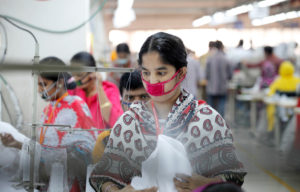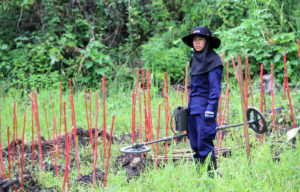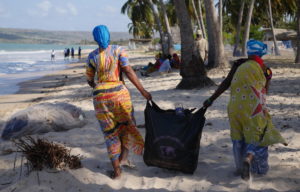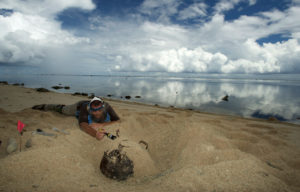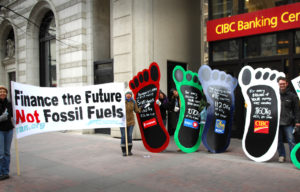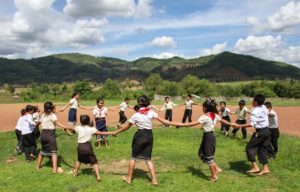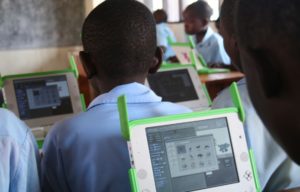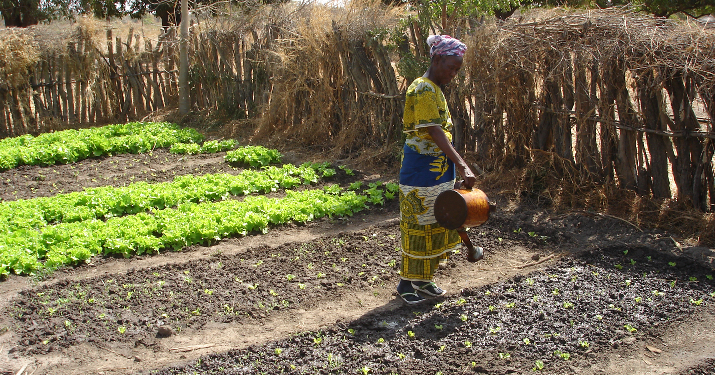
Claus Christensen, SustainableEnergy
Microfinance protects forest in Mali
In Mali, more than 4000 people have now stopped cutting down forest for fuel, and have turned to making a sustainable living from beekeeping, chicken coops, or vegetable farming. All made possible by micro-financing.
Share
Other categories
Region: Africa
Theme: Economy, Entrepreneurship
All forest has now disappeared up to a distance of 20 kilometres from Bamako, the capital of Mali. Every day, pick-up trucks continue to venture still farther to load up on wood and drive back to the city. The demand for wood fuel is increasing rapidly because of the big migration to Bamako, which is currently the fastest growing city in Africa.
Logging here is far from sustainable, which means there’s a need for other types of livelihoods for the part of the population that turns to plundering the forest for income.
Locals turn sustainable and repay
The challenge of solving the problem of the rampant logging has inspired the Danish environmental organisation VedvarendeEnergi (SustainableEnergy) to team up with a partner organisation in Mali, MFC Nyetta. Together, they give the local people funding opportunities through micro-loans, in order to find alternatives to cutting down the trees. The results so far are very promising: More than 4000 people have turned away from damaging the environment to make a living. In addition, the repayment rates for the micro-loans has proven to be extremely high. As many as 95 percent of the loans are paid back in full, and from 2014 to 2015, the number of new loan takers has doubled to 728.
Local effort works
Project coordinator at VedvarendeEnergi, Kresten Kjær Sørensen, points to the work of the local partner organisation as being paramount to the success:
“The decisive factor in the success of this project has been the preparation work done by MFC Nyetta. They really put a lot of effort into visit villages and explain the concept of the micro-loans to the local people, especially the traditional leaders that the community often turns to for advice. We then also now see how the local people have taken on the responsibility of the loans taken by their community. The villages that are doing this best are also the villages where we have given the most and biggest loans, and where we see the best rates of loan repayment”.
Chicken coops going up
Breeding chickens is one of the popular alternatives to cutting down the forest. It gives a quick source of income just like gathering wood, and new chicken coops are currently going up in a lot of places. Local people are able to find their own construction materials, and even for vaccination of the animals, something which is not covered by the project funds.
“We did not know about vaccination before this project was launched. But we do now, and it means that only few chickens are lost”, explains a local man from the municipality of Dialakoroba, who supplements his agriculture with the income from the chickens. In the beginning of the projects, experts were called in to give lessons on aviculture, but now the local people are teaching each other. In this way, it takes less time to start up new chicken coops.
Bees save the trees
In addition to the chickens, beekeeping and vegetable farming have proven two good sources of sustainable income. Traditional apiculture is found in nearly all villages in the area, but it’s rarely producing a lot of honey. New types of improved wooden beehives (the so-called ‘Kenyan top-hive model’) has been found to improve the yield by up to 80 percent. In addition, it’s been found that keeping bees helps protect the forest, because the trees are not cut down or burnt in areas where the people keep bees.
Vegetable farming is a third alternative, and the most popular crops are onions, tomatoes, cabbages, and chili peppers. In fact, this alternative has the potential to give the highest income. The project has established three plant nurseries, which produce seedlings. Ten species of trees are being produced here, including mango, baobab, lemon, henna, and papaya. The plant nurseries are run by groups of women, who get an extra income from the sale of the seedlings.
The micro-finance project in Mali is only part of a larger project, which is now nearing its conclusion. But thanks to the small loans, the results of the project will live on in Mali, without continued support from the development assistance of Denmark.
